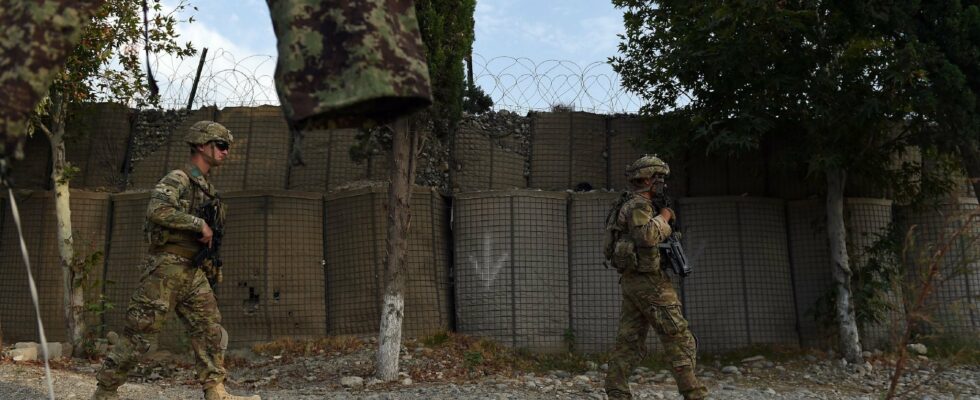200,000 dollars for each American or international coalition soldier killed in Afghanistan: this is the agreement that would have been proposed at the time by Russia to the Taliban, according to the independent Russian investigative media The Insider. A survey published jointly with the German daily Der SpeigelWednesday, January 8, provides new evidence of how Russian military intelligence (GRU) allegedly financed the Taliban to carry out attacks against U.S. and international forces before they withdrew from Afghanistan, including one in December 2019, against Bagram air base, in which four American personnel were injured.
The discovery of the scheme had already been revealed in 2020 by the New York Timesbut the investigation provides new details on Russia’s modus operandi. According to the investigation, the operation was supervised by Lieutenant General Ivan Kasianenko, deputy commander of Unit 29155, a group behind a series of bombings and poisonings in NATO countries. Russia is said to have paid the Taliban at least $30 million in total for attacks on coalition soldiers, accusations it has always denied.
Shell companies and precious stones
In total, Afghan intelligence has documented at least 17 attacks “linked to financial incentives from Russia, via a sophisticated money transfer network involving couriers in Tajikistan, China and Pakistan.” Unit 29155 allegedly recruited at least three networks of Afghan nationals to act as intermediaries between it and illegal armed groups in Afghanistan starting in 2015. The money used to pay the Taliban was then allegedly laundered through a trading front company. of precious stones, registered at a Moscow address linked to the GRU headquarters.
The sums paid by Russia to the Taliban (30 million dollars) would nevertheless be much lower, recalls The Insideras the approximately four billion dollars spent by the CIA in the 1990s on Operation Cyclone – the secret program intended to finance, arm and train the mujahideen, to oust the Soviet army from Afghanistan.
“Fear of an escalation”
The investigation also reveals that the Americans were aware of this assassination bounty system against their soldiers, but that the Donald Trump administration did not wish, at the time, to enter into a confrontation with Vladimir Putin. . “Our intelligence agencies didn’t want to be faced with the eternal question: Okay, the Russians are hurting us, so what are we going to do about it?,” said Charles Kupperman, deputy national security adviser. during Donald Trump’s first term.
CIA agents who analyzed intelligence on the GRU’s Afghan operations speak of “conventional wisdom”, citing geopolitical issues. “There were many instances where we were punched in the face and told not to do anything for fear of escalation,” a former CIA agent told the outlet. He was one of them.”
Sabotage attempts
The program reportedly started at least in 2015 and “reached its peak” around 2016, when Donald Trump was elected to his first presidential term. The objective of these operations? Increasing pressure on international forces to hasten their withdrawal, which occurred in August 2021, explain The Insider And Der Spiegel. The attacks stopped after then-US President Donald Trump reached an agreement in early 2020 to withdraw from Afghanistan.
Russian attempts to sabotage US plans in Afghanistan are actually as old as the latter’s presence in the country. Almost immediately after the establishment of the Afghan interim administration (supported by NATO) in December 2001, Moscow began recruiting agents from within the Taliban.
Since then, the United States completed its withdrawal from Afghanistan in 2021, in a chaotic context, precipitating the collapse of the Afghan government supported by Washington and the return of the Taliban to power. Moscow has since strengthened its partnership with this regime, which is still considered, despite everything, a terrorist organization in Russia. The investigation indicates, moreover, that the GRU officer in charge at the time of the “GRU-Taliban program” continues today to act as an “interlocutor”, negotiating military cooperation between Moscow and Kabul.
